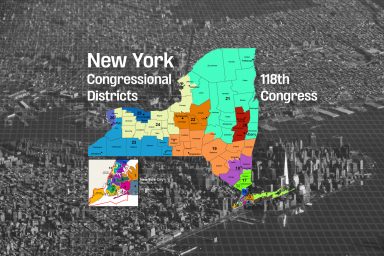After spending the past decade gutting the Voting Rights Act, the Supreme Court on Thursday passed up the first of two opportunities to finish the job.
|
Listen To This Story
|
After spending the past decade gutting the Voting Rights Act and leaving it as battered and bruised as those brave Americans who fought for its passage in the 1950s and ’60s, the Supreme Court on Thursday passed up the first of two opportunities to finish the job.
In a surprising 5-4 decision, the court ruled in Allen v. Milligan that Alabama’s legislature drew an illegal congressional map that deprived the state’s Black voters of an opportunity to be proportionally represented.
Alabama lawmakers will now have to redraw the map to create a second district in which these voters have a chance to elect a candidate of their choice.
The ruling will likely have repercussions throughout the South, as it could force legislatures in Louisiana, where a similar case was put on hold until the Supreme Court had ruled, South Carolina, and/or Georgia to redraw their own discriminatory maps. As a result, the decision could end up netting congressional Democrats anywhere from two to four seats.
Chief Justice John Roberts wrote the majority decision. He was joined by the court’s three liberals – Sonia Sotomayor, Elena Kagan, and Ketanji Brown Jackson – and, in perhaps the biggest surprise, conservative Justice Brett Kavanaugh.
It is much easier to figure out Roberts’s motivation than Kavanaugh’s. The chief justice must be growing concerned over his legacy, which, right now, consists of overseeing the court while it took a hard right turn and made a series of high-profile decisions that seem to be primarily motivated by politics rather than legal precedent.
That not only includes overturning Roe v. Wade but also mutilating the Voting Rights Act in a string of decisions beginning a decade ago with Shelby County v. Holder.
That ruling eliminated the so-called preclearance requirement, which mandated that states with a history of discrimination had to get the approval of the federal government prior to making changes to their voting laws.
Republican-run states in the South, those who previously were subject to preclearance, immediately took advantage of that ruling and passed many different laws that made it more difficult for minorities to vote.
Then, in 2019, the court ruled that federal courts could only intervene in the case of racial – and not political – gerrymandering.
Finally, in 2021, the conservative majority upheld two Arizona laws that disadvantaged minorities.
Therefore, court observers had widely expected that the court would give the Voting Rights Act the death knell this time around.
However, they have another chance.
In the coming days, the court will rule on Moore v. Harper. The fact that the court even agreed to hear the case is already an abomination.
It revolves around the question of whether North Carolina’s Supreme Court has the power to strike down a congressional map that violates the state’s constitution. North Carolina’s Republican legislators argue that, under the utterly ridiculous “independent state legislature theory,” neither the state’s courts nor its constitution have any power when it comes to laws relating to federal elections.
A decision in favor of North Carolina’s GOP in that case would likely result in election laws so racist that they would make Jefferson Davis blush.
Thomas (or Perhaps Crow) Dissents
Not surprisingly, Justice Clarence Thomas wrote a stinging dissent. However, it should be noted that it is unclear whether this is his opinion or that of his billionaire benefactor Harlan Crow.
In any case, Thomas wrote that the question in Allen v. Milligan is whether the Voting Rights Act “requires the State of Alabama to intentionally redraw its longstanding congressional districts so that black voters can control a number of seats roughly proportional to the black share of the State’s population.”
Thomas feels that it does not, “and, if it did, the Constitution would not permit it.”
After breathing a quick sigh of relief on Thursday, voting rights advocates will now have to wait for the Moore decision to see whether “lynching the Voting Rights Act for good” will also be part of the Roberts court’s legacy.




